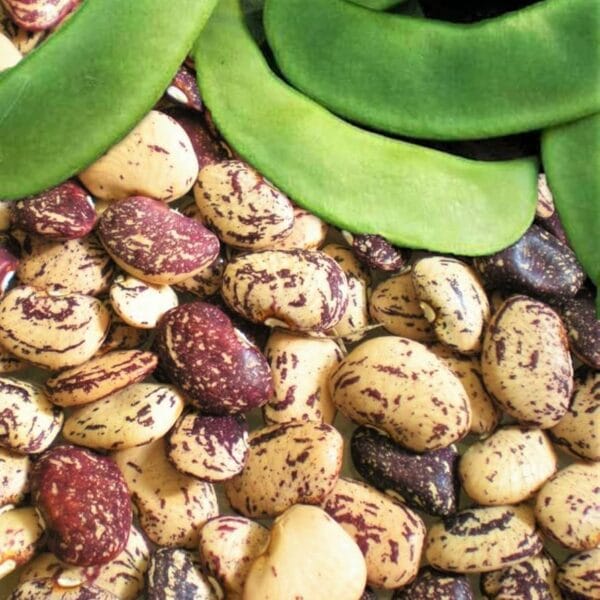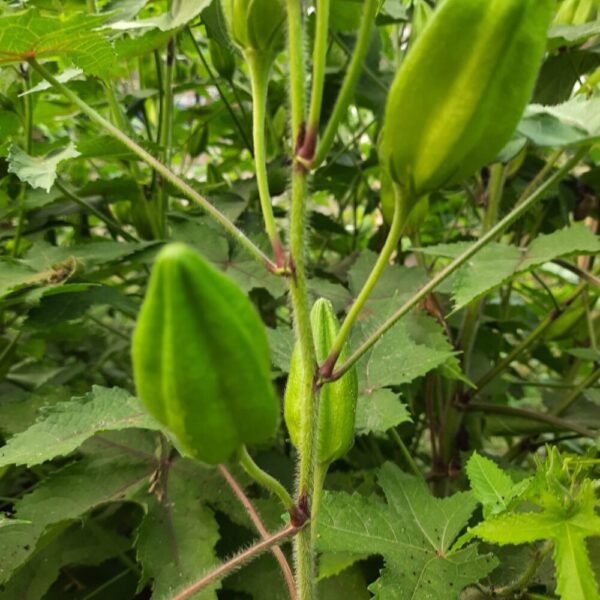Arai Keerai Big – Multi Cut Spleen amaranth seeds
Arai Keerai Big – Multi Cut Spleen amaranth seeds
Quantity: 10 grams
Arai Keerai Big – Multi Cut Spleen amaranth seeds, also known as Amaranthus Dubius or “Chinese Spinach,” is a popular leafy green vegetable in South India, particularly in Tamil Nadu. It belongs to the Amaranthaceae family and is a staple in South Indian cuisine due to its high nutritional value and versatility in cooking.
Key Characteristics of Arai Keerai Big – Multi Cut Spleen amaranth seeds
Appearance:
Leaves: The leaves of Arai Keerai are broad, dark green, and slightly glossy. They are tender and can vary in shape from oval to slightly lanceolate.
Stems: The stems are also edible and are usually green, though they can sometimes have a reddish tint.
Height: The plant typically grows to a height of about 1-2 feet.
Taste and Texture:
Flavor: Arai Keerai has a mild, slightly earthy flavor that is less bitter compared to other leafy greens like spinach.
Texture: The leaves are tender when cooked, making them suitable for a variety of dishes, including stir-fries, soups, and curries.
Nutritional Benefits
Vitamins: Arai Keerai is rich in vitamins A, C, and K. These vitamins are essential for maintaining good vision, boosting the immune system, and promoting healthy skin and bones.
Minerals: It is a good source of iron, calcium, and potassium, which are important for blood health, bone strength, and maintaining proper electrolyte balance.
Antioxidants: The leaves contain antioxidants that help in reducing oxidative stress and inflammation in the body.
Fiber: High in dietary fiber, Arai Keerai aids in digestion and helps in maintaining a healthy gut.
Culinary Uses
Traditional Dishes: Arai Keerai is commonly used in traditional South Indian dishes like Keerai Masiyal (a simple mashed greens dish), Keerai Poriyal (stir-fried greens), and various types of sambar and kootu (lentil-based dishes).
Soups and Salads: The leaves can be added to soups and salads for an added nutritional boost.
Smoothies: Fresh Arai Keerai leaves can be blended into smoothies for a healthy, green drink.
Juicing: The leaves can be juiced along with other vegetables for a nutritious drink.
Growing Conditions
Climate: Arai Keerai thrives in warm, tropical climates. It is a hardy plant that can grow well in a range of temperatures but prefers the warmth.
Soil: It grows best in well-drained, loamy soil rich in organic matter. Regular watering is essential to keep the soil moist but not waterlogged.
Sunlight: This plant requires full sunlight to partial shade. It grows well in garden beds, containers, and even as a part of vertical gardening setups.
Cultural Significance
In Tamil Nadu, Arai Keerai is more than just a nutritious vegetable; it is an integral part of the local diet and culture. It is often grown in home gardens and used in everyday cooking. Its ease of cultivation and fast growth make it a popular choice among home gardeners.
Conclusion
Arai Keerai Big – Multi Cut Spleen amaranth seeds is a versatile, nutritious, and culturally significant leafy green that offers numerous health benefits.
Its mild flavor and tender texture make it a favorite in South Indian cuisine, and its nutritional profile makes it an excellent addition to a healthy diet. By incorporating Arai Keerai into your meals, you can enjoy both its delicious taste and its health-promoting properties.
Arai Keerai Big – Multi Cut Spleen amaranth seeds
Arai Keerai Big – Multi Cut Spleen amaranth seeds
Arai Keerai, also known as Amaranthus dubius, is a popular leafy vegetable in South India. The term “Arai Keerai” translates to “half spinach” in Tamil, reflecting its intermediate size and nutritional profile that sits between smaller greens and larger leafy vegetables.
Here’s an overview of Arai Keerai Big – Multi Cut Spleen amaranth seeds, often specifically referred to as “big” due to its relatively larger leaves compared to other varieties:
Characteristics Appearance: Arai Keerai has broad, oval-shaped leaves that are green and can grow quite large, giving it the “big” descriptor. The leaves are smooth with prominent veins. Stems: The stems are sturdy and green, often with a slight reddish tinge.
Growth Habit: This annual herb can grow up to 1-2 meters tall, depending on the growing conditions. It has a bushy appearance with multiple branching stems.
Growing Conditions
Climate: Arai Keerai Big – Multi Cut Spleen amaranth seedsthrives in warm, tropical to subtropical climates. It grows best in temperatures between 20°C and 35°C.
Soil: Prefers well-drained, fertile soil rich in organic matter. The ideal soil pH is between 6.0 and 7.5.
Water: Regular watering is essential to keep the soil consistently moist, but avoid waterlogging. The plant is relatively drought-tolerant once established. Propagation Seeds: Propagated primarily through seeds. Sow seeds directly in the garden or start them in seed trays for transplanting later.
Germination: Seeds typically germinate within 5-7 days under favorable conditions.
Planting and Care Spacing: Space plants about 20-30 cm apart in rows that are 30-45 cm apart to allow adequate airflow and growth. Weeding: Regular weeding is necessary to reduce competition for nutrients and water.
Mulching: Apply organic mulch around the plants to retain soil moisture and suppress weeds.
Fertilization: Use a balanced fertilizer or well-rotted compost to provide essential nutrients throughout the growing season.
Harvesting Maturity: Arai Keerai Big – Multi Cut Spleen amaranth seeds can be harvested as early as 30-45 days after sowing for young leaves. Mature leaves and stems can be harvested continuously throughout the growing season.
Method: Cut the outer leaves and tender stems with scissors or by hand. Regular harvesting encourages new growth and prevents the plant from becoming woody.
Culinary Uses Leafy Greens: The tender leaves can be used fresh in salads or cooked like spinach.
They are commonly used in South Indian dishes.
Stir-Fries: The leaves and stems are excellent in stir-fries, where their texture and flavor add a unique touch. Curries and Soups: Adds nutrition and flavor to curries and soups.
Smoothies: Fresh leaves can be blended into smoothies for added nutrition and a green color.
Health Benefits Digestive Health: High fiber content aids in digestion and promotes regular bowel movements. Anti-Inflammatory: The antioxidants and nutrients in Arai Keerai have anti-inflammatory properties.
Bone Health: Rich in calcium and vitamin K, which are essential for bone health.
Blood Health: High iron content helps in preventing anemia and maintaining healthy blood.
Environmental Impact
Soil Health:Arai Keerai Big – Multi Cut Spleen amaranth seeds can improve soil health by adding organic matter and can be used as a green manure crop.
Biodiversity: It attracts beneficial insects and contributes to biodiversity in the garden. Summary Arai Keerai (big) is a nutritious and versatile leafy vegetable that is easy to grow and widely used in South Indian cuisine.
Its high nutritional content, including vitamins, minerals, protein, and antioxidants, makes it a valuable addition to a healthy diet. With proper care and growing conditions, Arai Keerai Big – Multi Cut Spleen amaranth seeds can provide a bountiful harvest of nutrient-dense leaves and stems, enhancing both the visual appeal and nutritional value of meals.
Arai Keerai Big – Multi Cut Spleen amaranth seeds
| Weight | 20 g |
|---|---|
| Dimensions | 11 × 8.5 × 11 cm |







Reviews
There are no reviews yet.